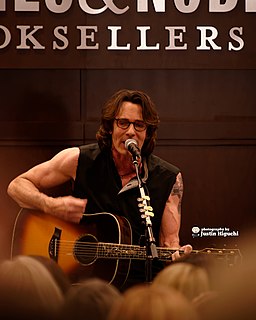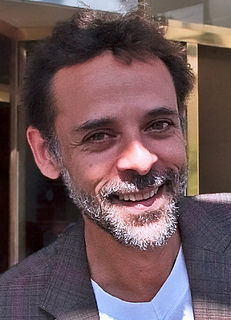A Quote by Elliott Colla
I wrote Baghdad Central right after translating a great work by Ibrahim al-Koni, who is sort of a master of Arab fiction. In conversations with him I realized that translations have been my MFA program. If I have learned how to write fiction it's by working with great writers and getting them to explain their craft to me so that I can do it in English. That's how I've figured it out.
Related Quotes
With Ibrahim al-Koni, what I figured out was - and you'll see this in his novels - if your time is limited, make the unit of the chapters small so that you can finish one a day, at least in the first draft. Once you have the first draft it's living, and you can coax it to grow and trim it and reshape it and so on. But get that first draft. I think if I'd gone to an MFA program and learned that, it would have been money well spent. But translation has been that for me.
I did go to an MFA program, at Bowling Green State University in Ohio. For me, it worked perfectly. It was a small program. They only take five fiction writers a year, and they fund all of us - you don't go into debt to get an MFA. It's not like getting an MBA - you're not going to buy yourself out.
There are many other writers whose work I admire tremendously, but none whose work struck me at just the right young age. Jack Vance taught me that speculative fiction, science fiction, could be wonderfully and liberatingly stylistic. It didn't have to be pulp stuff. He really changed my writing and my view of science fiction, so if nothing else, my little homage to him in the novelette I wrote for that anthology is my thank-you to him. He helped me see that any genre can have excellent writing in it.
Even my colleagues don't read classic criticism. And my feeling is that if you don't do that then you're not really practicing your craft. That's how you learn how to do it. You don't learn how to write about jazz just from listening to jazz. You learn how to write by reading the great writers and how they worked, the great music critics.
When you're not doing fiction, there's a limit to how much illustrating you can do with your work. I mean, you can do fine. There are great non-fiction writers, but people aren't necessarily going to say anything that reveals them as much as a picture might. Even their surroundings, in lot of cases, the things that meant the most to me were the things I noticed in their houses. I was always looking, as much as I was listening to them. I was looking around for clues as to why I was there.
The fiction I've written and published is certainly inflected by the work of authors I was reading or translating at the time. One of my methods for developing my own voice in fiction, a process I am taking very slowly and deliberately, is through these very intense encounters with certain writers. Strength and power in fiction is being able to resist these intoxicating voices, recognizing that they are the signatures of other writers and not one's own.
My god, people are selling their work and people are reading it! The horror! That MFA programs have to advertise that they'll let you write YA or fantasy or what-have-you is just absurd, but we do, because the presumption is that they're closed to that sort of thing. You're offering an MFA in creative writing? Teach people how to write well, worry about that part, let the writers come up with the stories.
The only good grades I ever got in school before I was kicked out were for creative writing. I thought that fiction might be in my future but then my career took a different path once the Beatles showed me what a blast being in a band could be. Writing my memoir Late, Late at Night reminded me how much I love the craft. So I decided to give fiction a shot again.Magnificent Vibration is the result. I’m still not quite sure where it came from, but once I got going, it practically wrote itself. I’ve heard writers I admire speak of that phenomenon, so maybe I’m on the right track.
When I taught at the University of Houston in the Creative Writing program we required the poets to take workshops in fiction writing and we required the fiction writers to take workshops in poetry. And the reason for that is because the fiction writers seemed to need to learn how to pay greater attention to language itself, to the way that language works.
I think the Arab world has no personality cult situation going on that they have in much of the Western world, South America included. They are a culture of words and religion, and you won't see manycsa charismatic people on Al Jazeera, except for the ones who are now learned presenters. You see Arab leaders getting on TV - which was very hard for me working out how to do the part, since Arab leaders are looking somnambulant, staring into their microphone, almost as if someone's got a hand up their back.
Incidentally, I am intrigued by how many European and Latin American writers expressed their political views in the columns they routinely wrote or write in the popular press, like Saramago, Vargas Llosa, and Eco. This strikes me as one way of avoiding opinionated fiction, and allowing your imagination a broader latitude. Similarly, fiction writers from places like India and Pakistan are commonly expected to provide primers to their country's histories and present-day conflicts. But we haven't had that tradition in Anglo-America.































